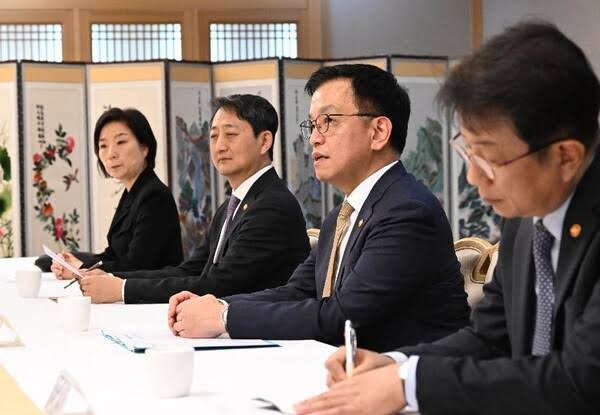
South Korea’s acting president, Han Duck-soo, announced on Monday that the country’s finance and trade ministers will travel to Washington this week for high-level trade talks, aiming to avert steep tariffs proposed by U.S. President Donald Trump.
South Korea is a key exporter to the United States, and major corporations such as Samsung Electronics and Hyundai Motor Company could face significant setbacks if the U.S. proceeds with the threatened trade levies.
“During a phone conversation with President Trump on the 8th, we agreed to pursue constructive discussions on economic cooperation, including trade imbalances between South Korea and the United States, through ministerial-level engagements,” said Han.
Finance Minister Choi Sang-mok and Trade and Industry Minister Ahn Duk-geun are scheduled to meet U.S. Treasury Secretary Bessent and U.S. Trade Representative Jamieson Greer on Thursday. Han described the meeting as a “meaningful starting point for future cooperation.”
Addressing a government task force, Han emphasized that the South Korean government will approach the talks with composure and resolve. “We will conduct these discussions calmly and sincerely, guided by the principle of prioritizing the national interest and seeking mutually beneficial outcomes,” he stated.
Key topics on the agenda include trade imbalances, shipbuilding, and liquefied natural gas (LNG), according to Han.
President Trump recently noted that both Japan and South Korea have expressed interest in collaborating with the U.S. on a large-scale LNG pipeline project in Alaska.
“We recognize that these negotiations will be challenging and are aware of the mixed expectations and concerns,” Han said. “But the Republic of Korea has always risen to the occasion, turning past crises into opportunities through the unity of our people — the bedrock of our growth and prosperity.”
In response to growing trade uncertainty, Seoul announced last week an additional $5 billion investment in its semiconductor sector, signaling proactive efforts to cushion the impact of potential U.S. tariffs.
